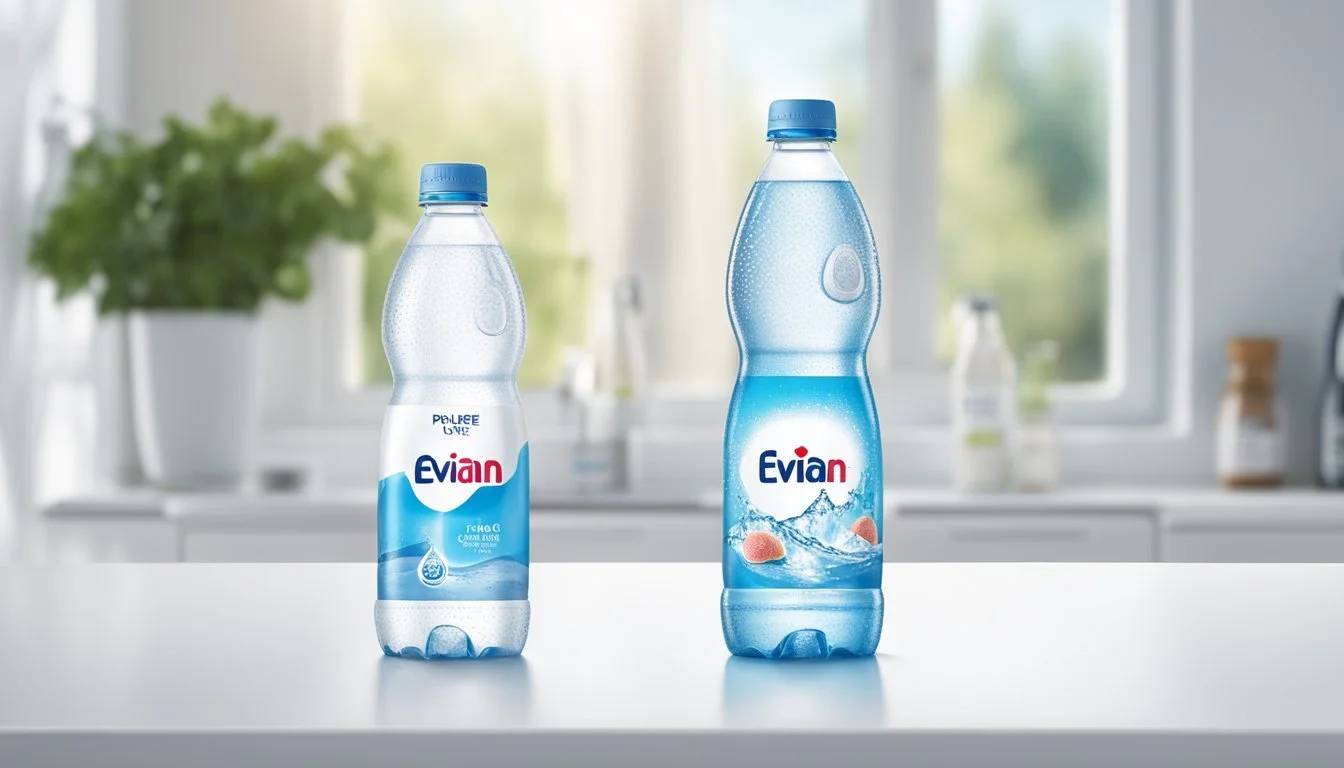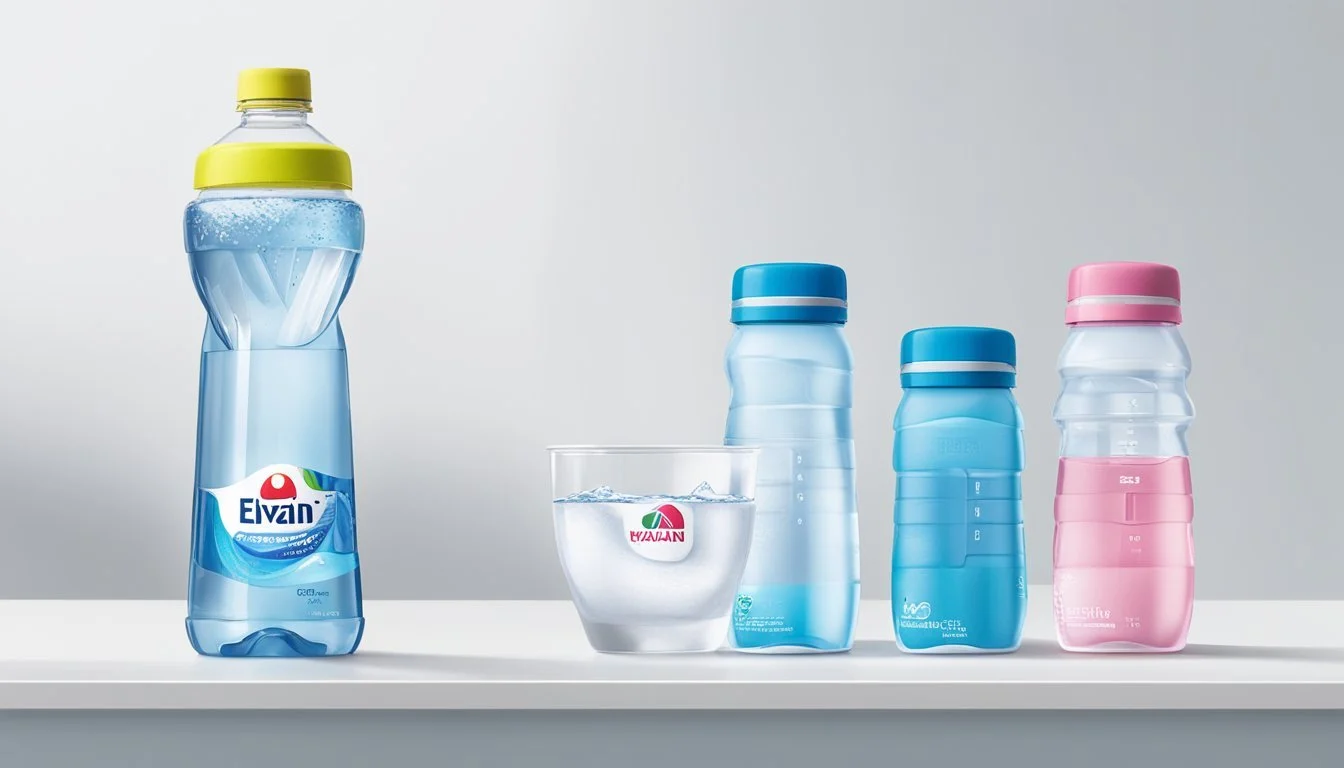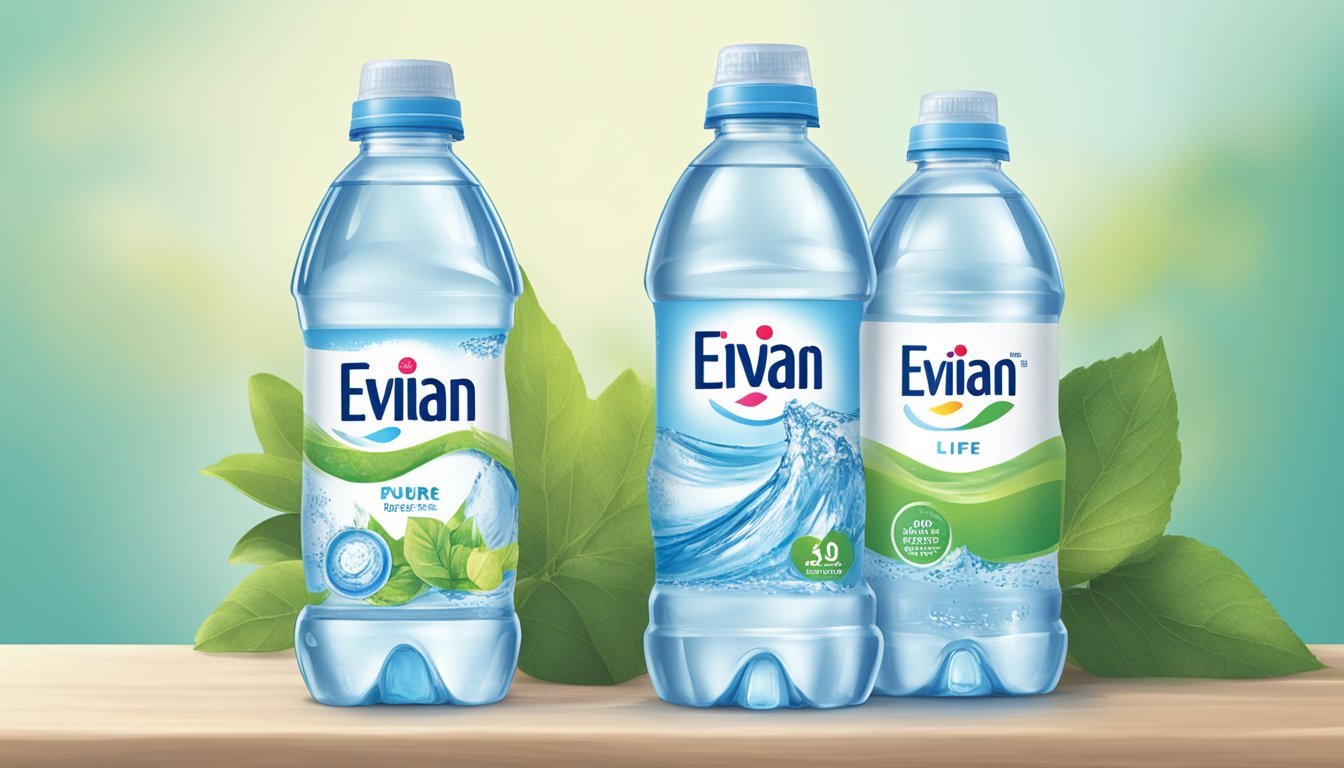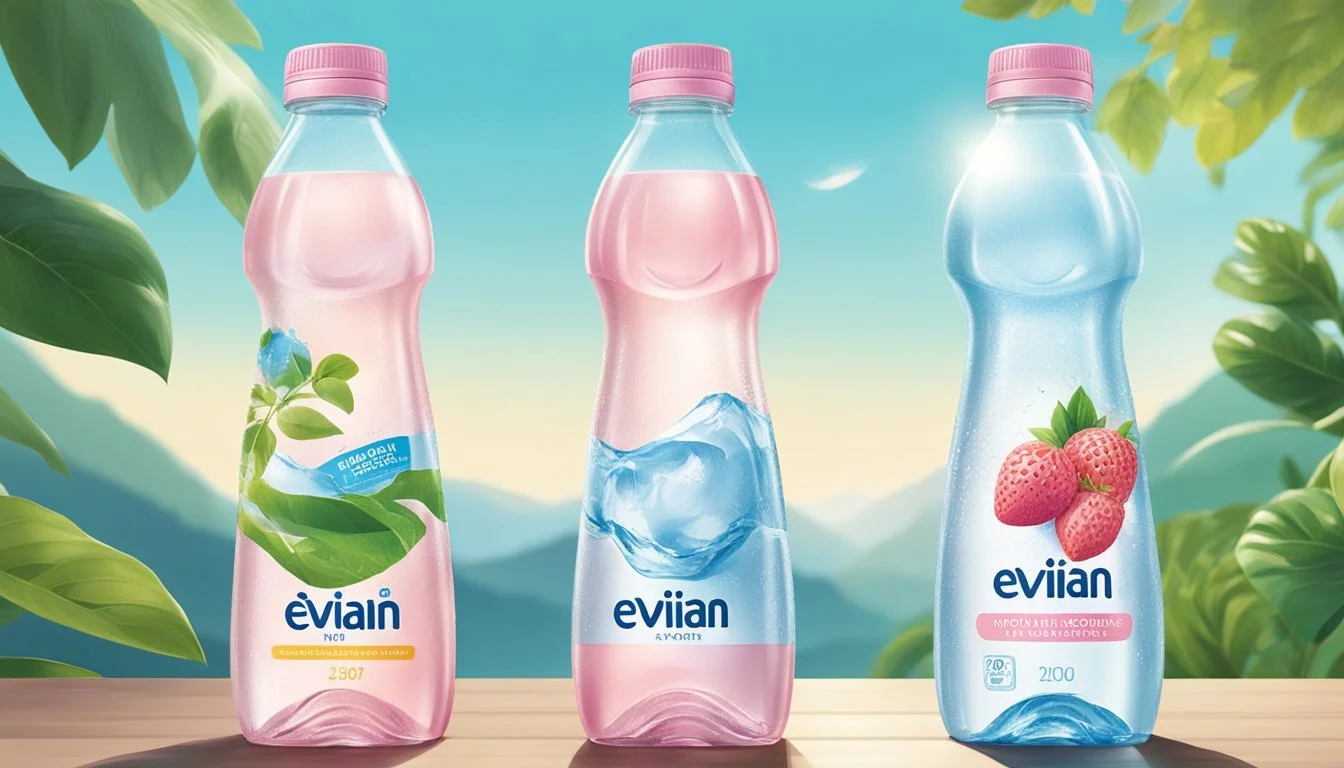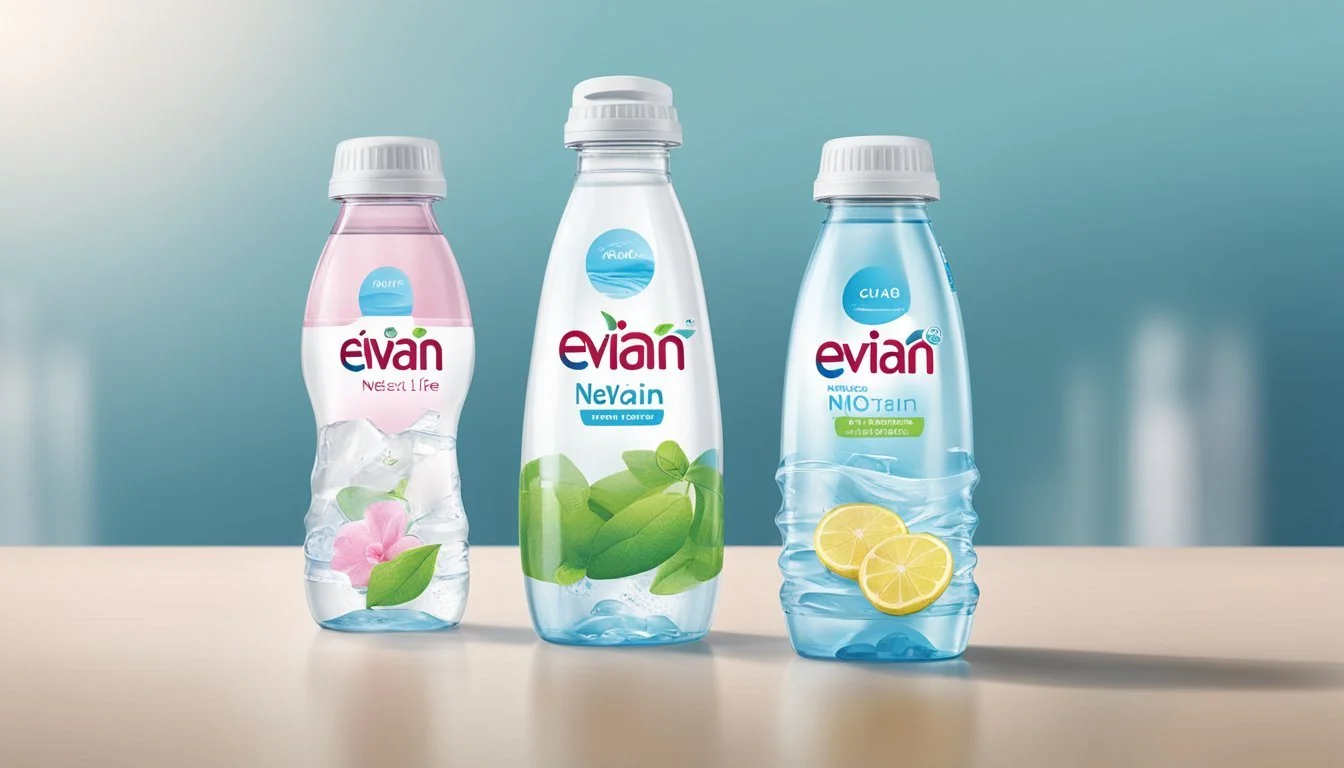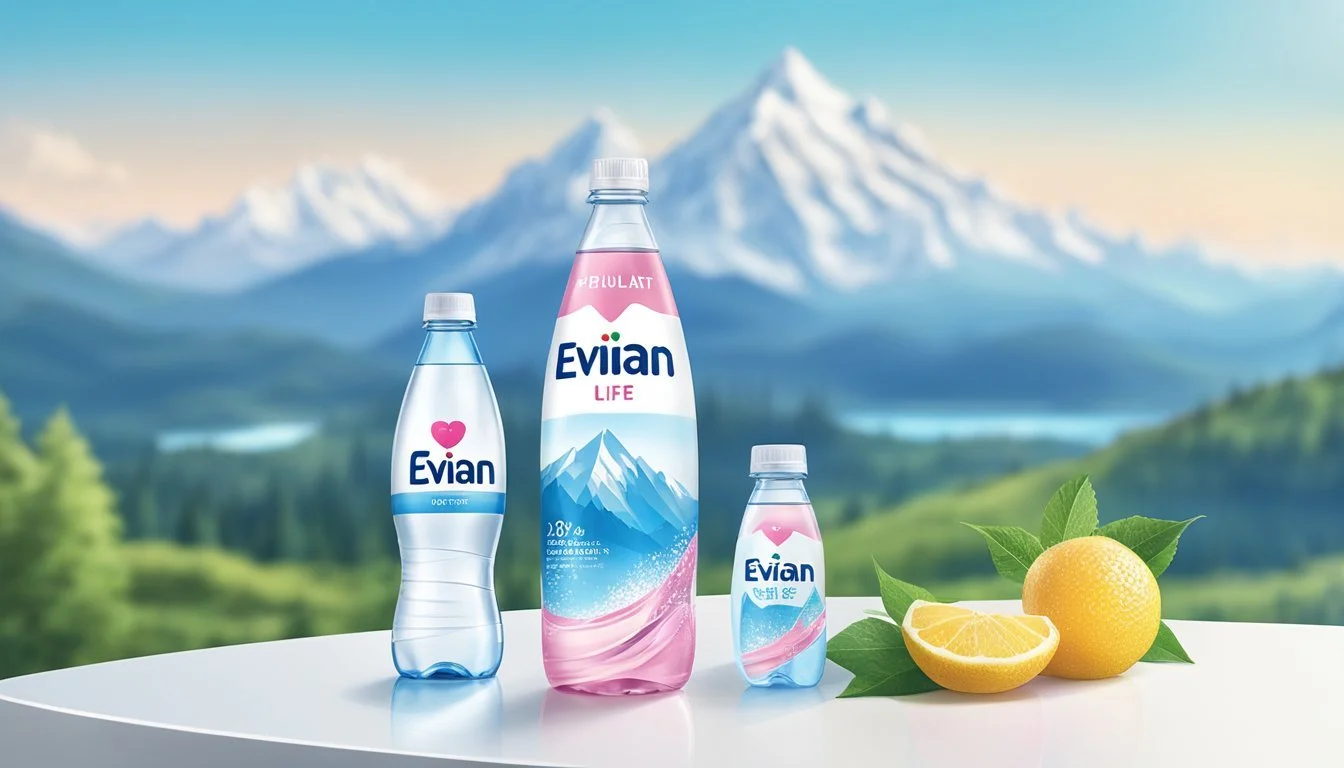Evian vs. Nestlé Pure Life
A Comprehensive Comparison of Bottled Waters
When it comes to choosing bottled water, many consumers wonder about the differences between popular brands like Evian and Nestlé Pure Life. These brands represent two distinct categories of bottled water: Evian is known as a natural spring water, sourced from the French Alps and naturally endowed with minerals. Nestlé Pure Life, on the other hand, is purified water, having undergone a rigorous filtration process, and enhanced with a blend of minerals for taste.
The choice between Evian and Nestlé Pure Life often boils down to individual preferences and priorities. Evian's unique mineral composition results from its journey through the glacial sands, which imparts a balanced pH and a distinctive, smooth taste that is often praised by water connoisseurs. In contrast, Nestlé Pure Life's multi-step purification process, which includes demineralization and remineralization, aims to achieve a consistent quality and taste, making it a common choice for consumers looking for reliable and safe hydration.
Both Evian and Nestlé Pure Life adhere to stringent quality controls and meet global standards for bottled water, but they offer different experiences. Consumers interested in the natural properties and taste profile of water from a natural source may lean towards Evian, whereas those who value the safety and consistency that comes from scientifically controlled processes might prefer Nestlé Pure Life. Consequently, the debate isn't necessarily about which water is better, but which water better meets the expectations and needs of the individual.
The Essence of Bottled Water
Bottled water is a staple for many, providing hydration with convenience. There are various types of bottled water, including spring water sourced directly from natural springs where water flows to the surface of the earth from underground.
Minerals and electrolytes are natural components of water that can affect taste and nutritional value. Many consumers choose bottled water not only to quench their thirst but also to intake these beneficial substances, albeit in varying quantities. Evian, for instance, is renowned for its mineral-rich composition from the French Alps.
In contrast, Nestlé Pure Life undergoes a multi-step purification process intended to ensure consistent taste and purity. This includes the addition of a specific amount of minerals for taste.
Here is a brief overview of the two:
Brand Source Notable Minerals Process Evian French Alps spring water Calcium, magnesium, bicarbonates Naturally filtered through glacial sand Nestle Pure Life Multiple sources Added calcium chloride, sodium bicarbonate Purified, minerals added for taste
For hydration, both brands deliver by providing water that meets regulatory standards. However, the presence of electrolytes like magnesium and calcium in natural spring water can contribute to a different hydration experience, as they play roles in biological hydration processes.
Consumers choosing between the two should consider both the source and the mineral content depending on their personal preference and whether they value naturally occurring minerals or added enhancements for a consistent taste.
Health and Safety Considerations
In evaluating Evian and Nestlé Pure Life, health and safety considerations center around hydration benefits, potential contaminants, and adherence to regulatory standards.
Benefits of Hydration and Minerals
Evian water, sourced from the French Alps, naturally contains minerals such as calcium, magnesium, and bicarbonate. These minerals are beneficial for bodily functions and can contribute to overall hydration. Nestlé Pure Life, filtered and enhanced with a blend of minerals for taste, provides hydration essential for health, although the specific mineral content can vary depending on the source.
Potential Contaminants and BPA Exposure
Both brands are subject to potential contamination risks; however, stringent filtering processes minimize these risks. The presence of microplastics has been reported in numerous bottled water brands, including Nestlé Pure Life. Bisphenol A (BPA), a compound found in some plastics, is another concern. Evian bottles are BPA-free, reducing exposure to this chemical.
Key Contaminants to Monitor:
Microplastics
BPA (in plastics)
Heavy metals
Regulatory Standards and Quality Reports
Evian and Nestlé Pure Life adhere to regulatory standards for water quality. Evian is subject to the French food (What wine goes well with French food?) safety authority, whereas Nestlé Pure Life must comply with local regulations such as the Environmental Protection Agency (EPA) in the U.S. Consumers can refer to quality reports for detailed information on water sources and testing results. Entities such as the Environmental Working Group may also provide independent analysis.
Regulatory Entities:
Environmental Protection Agency (EPA)
French food safety authority
Environmental Working Group (EWG)
Taste Profiles of Different Brands
The taste of bottled water varies primarily due to differences in mineral content and brand-specific filtration processes. Consumers often choose between brands like Evian and Nestlé Pure Life based on these taste profiles.
Mineral Content and Taste
Evian, sourced from the French Alps, has a unique mineral composition, including beneficial electrolytes like magnesium and calcium. This composition contributes to its distinctly smooth and refreshing taste with a hint of sweetness. Many prefer it for its naturally occurring electrolyte content and balanced pH.
Nestlé Pure Life, on the other hand, is purified water. It undergoes a rigorous filtration process, and minerals are added back for taste consistency. Its flavor is often described as clean and light, which some consumers find appealing for everyday hydration.
Comparing Evian and Nestlé Pure Life
When directly comparing the taste of Evian and Nestlé Pure Life, the differences are noticeable:
Evian provides a crisp and refreshing taste that many attribute to its balanced mineral content. It often carries a subtle yet pleasant flavor that is easily distinguishable from other brands.
Nestlé Pure Life, with added minerals for taste, has a more neutral profile that some might consider being bland when compared to mineral-rich waters like Evian. However, its taste is specifically engineered for consistency, which some consumers might favor for predictability.
Other brands like Dasani and Aquafina also have their distinct taste profiles, with Dasani being known for a slight saltiness due to added minerals, while Aquafina prides itself on a consistent, pure taste due to its extensive purification process.
Environmental Impact
When comparing Evian and Nestlé Pure Life, the environmental impact largely revolves around two major points: plastic bottle pollution and the sustainability efforts of the respective brands.
Plastic Bottle Pollution
Both Evian and Nestlé Pure Life distribute their water in plastic bottles, which can contribute to environmental pollution. The plastic used is often PET (polyethylene terephthalate), which has been criticized for using fossil fuels in its production and for the challenges it presents in waste management due to its non-biodegradability. In particular, concerns regarding Bisphenol A (BPA), a chemical that used to be commonly found in many plastics, have led to its removal from many bottled water brands due to potential health risks. Both Evian and Nestlé have addressed these concerns over the years:
Evian: Their bottles are now BPA-free.
Nestlé Pure Life: They also produce BPA-free plastic bottles.
Sustainability Initiatives of Brands
Evian and Nestlé Pure Life approach sustainability through various initiatives to mitigate the environmental impact of plastic bottles.
Evian:
Has committed to becoming a circular brand by 2025, with an aim to make all of their plastic bottles from 100% recycled plastic (rPET).
Is involved in initiatives to protect natural water sources and reduce carbon footprint.
Nestlé Pure Life:
Nestlé has made broad commitments to reduce its use of virgin plastics by one-third by 2025 and invests in recycling infrastructure.
The brand has introduced bottles made of up to 100% rPET in some markets.
Comparative Analysis of Water Brands
This section dives into the spectrum of bottled water brands, specifically focusing on a comparison between Evian and Nestlé Pure Life, and discusses the range from premium to budget options available to consumers.
Bottled Water Brands Spectrum
In assessing the wide range of bottled water brands, it becomes clear that offerings vary from premium brands like Voss and Fiji to more accessible ones such as Arrowhead and Zephyrhills. These brands are distinguishable by their sources, with some like Fiji Water and Icelandic Glacial boasting exotic and pristine origins, while others like Nestlé's Poland Spring and Pure Life come from multiple sources which may include well water or public water supplies.
Evian versus Nestlé Pure Life
Evian Natural Spring Water: Sourced from the French Alps, Evian undergoes a natural filtration process and contains beneficial minerals. It stands among the top-tier brands like San Pellegrino and Perrier, known for its mineral content and taste.
Nestlé Pure Life: While it is a product of Nestlé, a major player in the bottled water industry, Nestlé Pure Life is positioned as a budget-friendly option. It is purified water that is often enhanced with a unique blend of minerals for a distinctive flavor.
Premium and Budget Choices in Bottled Water
Consumers looking for premium options might gravitate towards brands like Smartwater and Fiji, known for their quality and taste, often attributed to their unique sources. Conversely, budget-conscious shoppers might prefer Nestlé Pure Life or Deer Park, which are more affordably priced but still maintain standardized quality controls. The choice between premium and budget often comes down to factors such as taste preferences, mineral content, and the water's source.
Source and Purity of Water
When comparing Evian and Nestlé Pure Life, it is essential to consider the origin and the processing each undergoes, ensuring their purity and the preservation of their sources.
Natural Spring versus Purified Water
Evian draws its water from a natural spring originating in the French Alps. This spring water naturally filters through glacial sand and is enriched with minerals like calcium and magnesium, contributing to its distinctive taste and making it mineral water. Nestlé Pure Life, on the other hand, begins as tap water or groundwater. It undergoes a multi-step purification process that includes reverse osmosis and/or distillation before minerals are added back for taste. This results in what is known as purified water. The key distinction here is that spring water comes from a specific aquifer and retains its natural minerals, while purified water can originate from any source and is processed to remove chemicals and impurities.
Evian (Natural Spring Water) Nestlé Pure Life (Purified Water) Source French Alps natural spring Groundwater or municipal supply Process Natural filtration Reverse osmosis, distillation Minerals Naturally occurring Added for taste
Protecting Water Sources from Drought and Exploitation
Evian's water source in the French Alps is sustained through strict environmental practices, safeguarding against drought and exploitation. The company emphasizes its commitment to natural resource preservation, with their extraction volume aligning tightly with recharge rates to ensure the longevity of their source.
Nestlé has a range of water brands, including Nestlé Pure Life and Arrowhead Mountain Spring Water. Nestlé works to manage their water sources responsibly amid concerns over the impact of bottled water extraction on local communities and ecosystems, particularly in areas like Colorado, where sources can be affected by both drought and excessive withdrawal. The company implements measures to monitor and maintain spring and groundwater levels to promote sustainability of their water sources.
Both Evian and Nestlé assert that they strive to balance consumer needs with the well-being of the ecosystems from which they draw their water. They invest in protecting water sources to ensure they provide high-quality water today while preserving the environment for the future.
Mineral Content and Health Benefits
When comparing Evian and Nestlé Pure Life bottled waters, it's crucial to consider the mineral content of each, as minerals are essential for various bodily functions. Both brands offer different levels of minerals which can contribute to health benefits.
Electrolytes and Body Function
Human bodies require electrolytes, such as potassium and sodium, to regulate nerve and muscle function, hydrate the body, balance blood acidity and pressure, and help rebuild damaged tissue. Evian water, sourced from the French Alps, contains naturally occurring electrolytes and minerals, due to the water percolating through glacial sand. Nestlé Pure Life, while also providing electrolytes, adjusts its mineral composition during processing to achieve a consistent product.
Evian contains approximately:
1 mg/L Potassium
10 mg/L Sodium
Nestlé Pure Life includes:
Levels are adjusted to taste and may vary.
Calcium and Magnesium Levels
Calcium and magnesium in water contribute to bone and dental health, and they also play a role in cardiovascular and nerve health. Bottled water with high mineral content can be a supplemental source of these minerals. Evian is known for its higher mineral content, providing a significant portion of the recommended dietary allowance (RDA) for these minerals.
Evian provides roughly:
80 mg/L Calcium (8% of daily RDA)
26 mg/L Magnesium (6.5% of daily RDA)
Nestlé Pure Life offers lower levels than Evian, but still contributes to daily mineral intake:
Nestlé Pure Life has approximate values:
12 mg/L Calcium
2 mg/L Magnesium
Consumer Choices and Preferences
When selecting bottled water, consumers weigh factors like health benefits, taste preferences, and label transparency. Marketing efforts can influence these decisions, but an awareness of nutritional needs and personal lifestyle are pivotal.
Understanding Labels and Marketing
Labels on bottled water can be a source of valuable information for consumers who prioritize health and hydration in their diet. They often look for labels that specify the source of the water and any filtration processes it underwent, as these can affect taste and perceived purity. For instance:
Evian is labeled as natural spring water, emphasizing its origin from the French Alps.
Nestlé Pure Life, as one search result indicated, involves various sources and processes, which should be clear to consumers.
Marketing strategies can also sway consumer preferences. For example, words like "pure" and "natural" are appealing, but consumers are becoming more discerning, seeking beyond persuasive language to understand the true quality of the water they are purchasing.
The Role of Water in Diet and Lifestyle
Incorporating water into one’s diet is a health essential, as it is crucial for hydration and overall bodily function. Consumers often choose between Evian and Nestlé Pure Life based on:
Taste: Some may prefer the taste profile that Evian's unique mineral composition provides, while others might favor the clean, consistent flavor that Nestlé Pure Life offers.
Lifestyle: Active individuals might opt for a brand like Evian due to its association with naturalness and sports culture, whereas families might prefer Nestlé Pure Life for its affordability and wide availability.
Tips for consumers include:
Checking the label for sodium content, especially if they are managing blood pressure.
Considering the environmental impact of their purchase, since both brands offer different approaches to sustainability.
Industry Practices and Consumer Transparency
When considering bottled water options, understanding a company’s ethical practices and the transparency of its product sourcing and quality is essential.
Bottling Companies and Ethical Practices
Evian and Nestlé Pure Life, owned by Danone and Nestlé respectively, illustrate varying ethical practices within the industry. As members of the International Bottled Water Association (IBWA), they commit to certain standards, yet the companies diverge in approach. Evian has built its brand on the image of luxury and environmental stewardship, emphasizing its natural source in the French Alps. On the other hand, Nestlé Pure Life, being part of the largest food company in the world, Nestlé, sources its water from various global locations, facing critique for its practices in water extraction and the impact on local communities.
Evian:
✅ Emphasizes environmental responsibility.
✅ Natural spring source in France.
Nestlé Pure Life:
❗️ Faces critiques for water extraction practices.
🌐 Sourced globally, impacting local water resources.
Transparency in Quality and Sourcing
Transparency is pivotal for consumers to make informed decisions. Evian clearly labels its source and provides quality reports available upon request, often in the format of a PDF via email. Nestlé Pure Life also publishes detailed quality reports, reflecting its focus on ensuring consumer trust. Coca-Cola and PepsiCo, important players in the bottled water industry as owners of Dasani and Aquafina respectively, have taken steps towards transparency, providing sourcing and quality information in alignment with industry standards.
Quality Report Accessibility:
Evian: Easily obtainable through email request, contains comprehensive water quality information.
Nestlé Pure Life: Detailed reports that enhance consumer trust are published regularly.
In summary, the bottled water industry's practices around ethical sourcing and transparency directly impact consumer preferences. Both Evian and Nestlé Pure Life provide transparency in their quality reporting, albeit with distinct ethical practices and degrees of scrutiny from the public and environmental groups.
Conclusion
When choosing between Evian and Nestlé Pure Life, consumers may consider factors such as taste, health benefits, environmental impact, and brand reputation. Evian water is sourced from the French Alps and is known for its electrolyte content and balanced mineral composition, qualities that many find enhance its taste. It is often marketed as a premium brand and is associated with sports and luxury.
Nestlé Pure Life, on the other hand, undergoes a rigorous purification process. It may include minerals added for taste, but it is generally regarded as an accessible, everyday choice rather than a premium brand.
Criteria Evian Nestlé Pure Life Source French Alps Various sources Taste Natural, balanced Clean, enhanced Health Minerals present Added minerals Environmental Recyclable bottle Recyclable bottle Reputation Premium Mass-market
Both brands emphasize their commitment to sustainability, using recyclable materials and advocating for responsible water consumption. Bottled water has an environmental cost due to packaging and transportation. In terms of health, both brands provide safe drinking water that meets regulatory standards. Ultimately, the decision may come down to personal preference regarding taste and the weight consumers put on the source and brand reputation.


